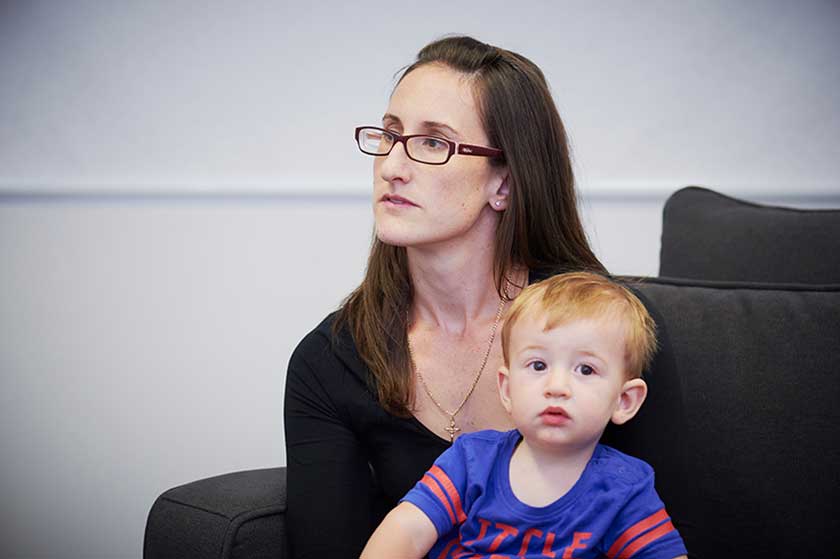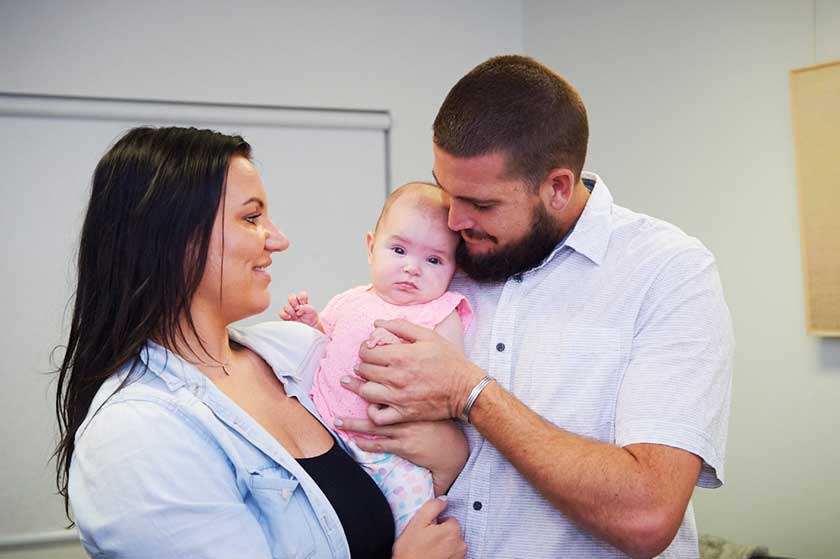It is sometimes referred to as postnatal depression and anxiety, perinatal depression and anxiety, PNDA or antenatal depression. Up to one in five women and one in 10 men experience perinatal anxiety or depression.
Mixed emotions are normal during pregnancy and adapting to the arrival of your new family member can take time. Many people experience some ups and downs during this period, but when those feelings last for more than a few weeks or begin to impact on your daily life, it's important to seek help.
Symptoms of perinatal anxiety and depression
The symptoms of anxiety and depression are often the same in women and men. You may experience these during pregnancy, or at any point in the 12 months after your baby is born.
Symptoms of perinatal anxiety include:
- worry or fear that interrupts thoughts and gets in the way of daily tasks
- panic attacks such as uncontrollable bursts of fear and panic that are overwhelming
- constantly feeling restless or irritable
- feeling overwhelmed
- tightness in the chest and tense muscles
- trouble relaxing
- trouble falling or staying asleep
- checking on the baby constantly due to fears for the baby’s health and wellbeing
- anxiety or fear of being alone with baby or leaving the house with baby
- constantly needing reassurance.
Symptoms of perinatal depression include:
- consistently low mood, feeling numb or feeling negative
- feeling like a failure, helpless, guilty or sad
- feeling mentally or physically unable to cope
- constant crying or feeling teary
- feeling angry, irritable or resentful
- not wanting to be around normal social networks
- constantly feeling worried, often for the wellbeing of the baby
- loss of interest in activities that would normally be enjoyed
- sleep problems that are not to do with the baby’s needs
- changes in appetite
- trouble thinking clearly, making decisions and focusing
- wanting to escape or get away from everything
- increased alcohol or drug use
- thoughts of harm to self or baby
- thoughts of death.
If you experience one or more of these symptoms for more than two weeks, you should visit your GP, who can refer you to our services for counselling or another appropriate service.
Raphael Services
St John of God Raphael Services perinatal anxiety and depression services can assist you and your family in a number of ways. Our services include:
- holistic, person-centred therapies to treat postnatal depression and anxiety
- helping you understand your symptoms and feel more in control
- equipping you and your family with the tools you need to strengthen your relationships and return to an active, healthy and rewarding life.







